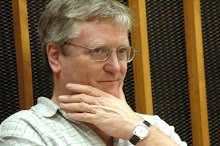I don't know if I've mentioned this before but in my opinion that Shakespeare was a clever sod. Aggravatingly so if you happen to make your living writing plays. The exhibition at the British Museum only confirms this, and, in my opinion, pulls the rug from under any argument about how he must have been a courtier, a diplomat, a spy, a rich traveller, or even the Earl of Oxford. (For further evidence of the spurious nature of these claims and the near lunacy of some of their proponents you have to read Contesting Will by James Shapiro which is scholarly, readable, and a hoot, not an easy trick to pull off.)
The exhibition takes you through the sequence of the plays and puts them in the context of the events against which he was writing - which monarch was up to what, which latest unsuccessful Irish expedition had to be given a favourable spin - with portraits, artifacts, maps, reports from travellers, and contemporary accounts of everything from court intrigue to bear baiting and public executions.
The hard evidence of how Shakespeare came to write the plays is there in front of you. He did what all writers do. Kept his eyes and ears open and made it up. The infuriating thing is that he did slightly better than the rest of us, and that's why there's this ridiculous debate about his identity. Some people are unwilling to accept that a man we know virtually nothing about produced such a soaring and timeless body of work, in language that embraces all shades of humanity and speaks to anyone who listens. We can see how a man from a humble background could create Doll Tearsheet, and Falstaff, they say, but surely he lacked the background to chart Prince Hal's journey to Henry V? Well, he did. End of. Live with it.
I was working on an RSC project with a group of kids in Sandwell, on the edge of Birmingham. In the piece I was writing with them a girl is play fighting with two male friends and wants to tell them to get off, let go of her. I didn't feel familiar enough with the way Black Country kids speak so I asked the group of girls what they'd say and straight away one girl said 'Loose me.' Will would have been proud of her.
At the end of the exhibition there is a complete works covered by Diwali stickers that was passed around the prisoners under the eyes of the guards on Robbin Island who thought it was a bible. Each prisoner underlined the lines that meant the most to them and signed their names. It's open on the page where Nelson Mandela has underlined Caesar's speech to Calpernia as he is about to leave for the senate where he will be assassinated -
Cowards die many times before their deaths;
The valiant never taste of death but once.
Of all the wonders that I yet have heard,
It seems most strange that men should fear,
Seeing that death, a necessary end,
Will come when it will come.
A voice echoing from over four hundred years ago bringing strength, honesty and light into the darkness of a South African prison. Good one, Will.
Subscribe to:
Post Comments (Atom)

No comments:
Post a Comment